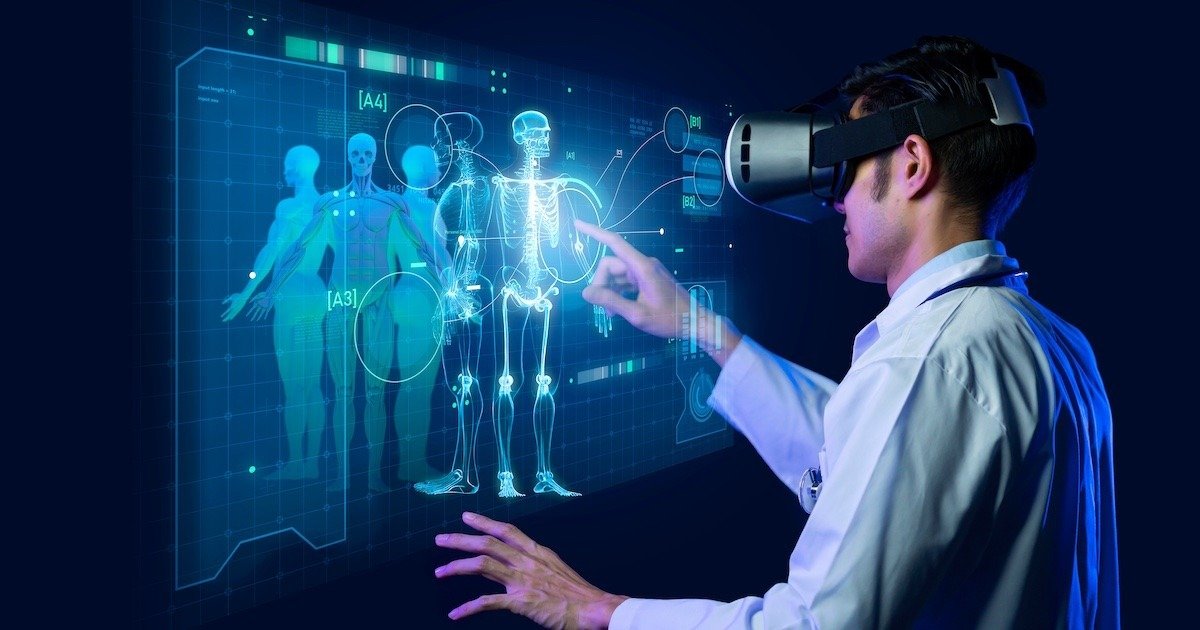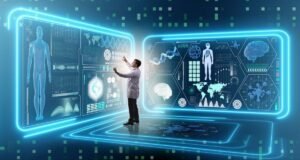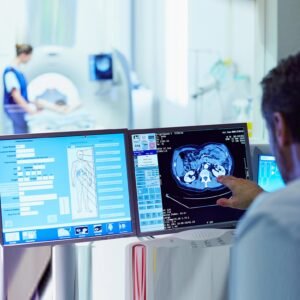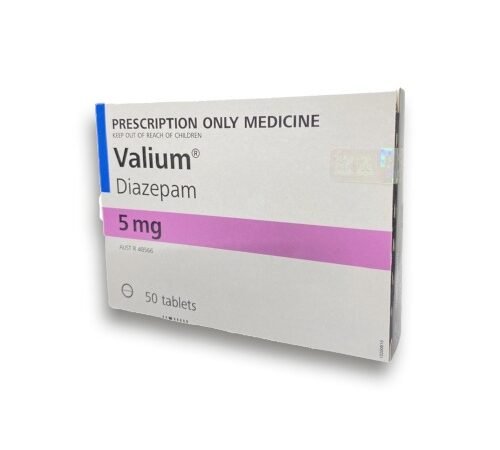Transforming Healthcare with AI: Exploring the Latest Innovations

In recent years, the integration of artificial intelligence (AI) into healthcare systems has revolutionized the industry. Offering unprecedented opportunities to enhance patient care, streamline operations, and drive medical breakthroughs. From diagnosing diseases to personalizing treatment plans, AI-powered technologies have shown immense potential in transforming the landscape of healthcare delivery. In this article, we delve into the latest innovations in AI and their profound impact on healthcare, exploring how platforms like aiotechnical.com health are driving this transformation.
The Role of AI in Healthcare
AI encompasses various technologies such as machine learning, natural language processing, and robotics. Which enable computers to perform tasks that typically require human intelligence. In healthcare, AI is being leveraged across diverse domains, including medical imaging, drug discovery, patient monitoring, and administrative operations. One of the key advantages of AI is its ability to analyze vast amounts of data rapidly. Leading to more accurate diagnoses, predictive insights, and personalized treatments.
Medical Imaging and Diagnostics
Medical imaging plays a crucial role in diagnosing diseases and monitoring treatment responses. AI algorithms have demonstrated remarkable capabilities in interpreting medical images. Such as X-rays, MRIs, and CT scans, with accuracy comparable to or even surpassing that of human radiologists. By analyzing imaging data, AI systems can detect anomalies, identify patterns indicative of diseases. And assist clinicians in making timely and informed decisions. Moreover, platforms like aiotechnical.com health offer advanced imaging solutions powered by AI, facilitating faster image interpretation and enabling more efficient workflows in healthcare settings.
Personalized Medicine
Traditional medical treatments often follow a one-size-fits-all approach, which may not be optimal for every patient. AI is driving the paradigm shift towards personalized medicine, wherein treatments are tailored to individual characteristics, such as genetic makeup, lifestyle factors, and disease progression. Machine learning algorithms analyze diverse data sources, including genomic data, electronic health records (EHRs), and wearable device metrics, to identify unique patient profiles and predict optimal treatment strategies. By harnessing AI-driven insights, healthcare providers can deliver targeted interventions, optimize medication regimens, and improve patient outcomes.
Drug Discovery and Development
The process of discovering and developing new drugs is notoriously lengthy, expensive, and prone to failures. AI technologies are revolutionizing this process by accelerating drug discovery, optimizing molecular design, and predicting drug interactions. Machine learning models trained on vast repositories of chemical and biological data can identify promising drug candidates. Predict their efficacy and safety profiles, and streamline preclinical testing. Additionally, AI-driven simulations enable virtual screening of compounds, significantly reducing the time and resources required for experimental validation. Platforms like aiotechnical.com health offer computational tools and databases that empower researchers and pharmaceutical companies to expedite drug discovery pipelines and address unmet medical needs more effectively.
Remote Patient Monitoring and Telemedicine
The rise of telemedicine and remote patient monitoring has been accelerated by AI-powered technologies, especially in light of the COVID-19 pandemic. AI-enabled wearable devices, sensors, and mobile apps enable continuous monitoring of patients’ vital signs, activity levels, and disease markers outside traditional healthcare settings. Real-time data streams are analyzed using machine learning algorithms to detect deviations from baseline, alert healthcare providers to potential issues, and intervene proactively. Moreover, AI-driven chatbots and virtual assistants facilitate remote consultations, symptom triaging, and medication adherence support, enhancing access to healthcare services and improving patient engagement.
Administrative Efficiency and Cost Reduction
In addition to clinical applications, AI offers significant benefits in optimizing administrative processes, enhancing operational efficiency, and reducing healthcare costs. Natural language processing (NLP) algorithms automate medical transcription, coding, and documentation. Minimizing errors and freeing up clinicians’ time for patient care. Predictive analytics models forecast patient admissions, resource utilization, and disease outbreaks, enabling healthcare organizations to allocate resources strategically and plan for contingencies. Furthermore, AI-driven revenue cycle management systems streamline billing processes, claims processing, and reimbursement optimization, ensuring financial sustainability for healthcare providers.
Challenges and Considerations
Despite the transformative potential of AI in healthcare. Several challenges and considerations must be addressed to maximize its benefits and mitigate potential risks.
Data Privacy and Security
Healthcare data is highly sensitive and subject to stringent privacy regulations. Such as the Health Insurance Portability and Accountability Act (HIPAA) in the United States. AI applications must adhere to strict data protection measures to safeguard patient confidentiality, prevent unauthorized access, and mitigate the risk of data breaches or cyberattacks. Robust encryption, access controls, and anonymization techniques are essential to ensure the privacy and security of healthcare data throughout its lifecycle.
Algorithm Bias and Interpretability
AI algorithms may exhibit biases or limitations inherent in the data used for training. Potentially leading to disparities in healthcare delivery and outcomes. It is critical to evaluate algorithms for fairness, transparency, and interpretability to mitigate bias and ensure equitable treatment across diverse patient populations. Explainable AI techniques enable clinicians to understand how algorithms arrive at specific decisions or recommendations, fostering trust and accountability in AI-driven healthcare systems.
Regulatory Compliance and Ethical Considerations
The regulatory landscape for AI in healthcare is evolving rapidly. Posing challenges in ensuring compliance with existing regulations and ethical guidelines. Regulatory bodies must adapt frameworks to accommodate the unique characteristics of AI technologies. Balancing innovation with patient safety and ethical standards. Stakeholder engagement, interdisciplinary collaboration, and continuous monitoring are essential to navigate regulatory complexities and uphold ethical principles in AI-driven healthcare.
Integration and Interoperability
Effective integration of AI solutions with existing healthcare systems and workflows remains a significant challenge. Hindered by interoperability issues, siloed data repositories, and legacy infrastructure. Seamless data exchange standards, interoperability frameworks, and application programming interfaces (APIs) are needed to facilitate the interoperability of AI platforms with electronic health records (EHRs), medical devices, and clinical decision support systems. Collaboration among healthcare stakeholders, technology vendors, and standards organizations is essential to overcome barriers to integration and realize the full potential of AI in healthcare delivery.
Conclusion
The integration of AI into healthcare holds immense promise for transforming patient care, enhancing clinical decision-making. And driving innovation across the healthcare ecosystem. From diagnosing diseases and personalizing treatments to streamlining administrative operations and improving healthcare access. AI-powered technologies are reshaping the future of healthcare delivery. Platforms like aiotechnical.com health are at the forefront of this transformation, offering innovative solutions and tools to empower healthcare providers, researchers, and policymakers. By addressing challenges related to data privacy, algorithm bias, regulatory compliance, and interoperability, stakeholders can harness the full potential of AI to create a more efficient, equitable, and patient-centric healthcare system.
In summary, the ongoing advancements in AI continue to reshape the healthcare landscape. Offering unprecedented opportunities to improve patient outcomes, optimize resource utilization, and accelerate medical discoveries. As AI technologies evolve and become more integrated into healthcare workflows. It is essential for stakeholders to collaborate, innovate responsibly. And prioritize patient welfare to realize the transformative potential of AI in healthcare.









